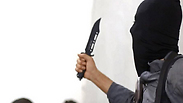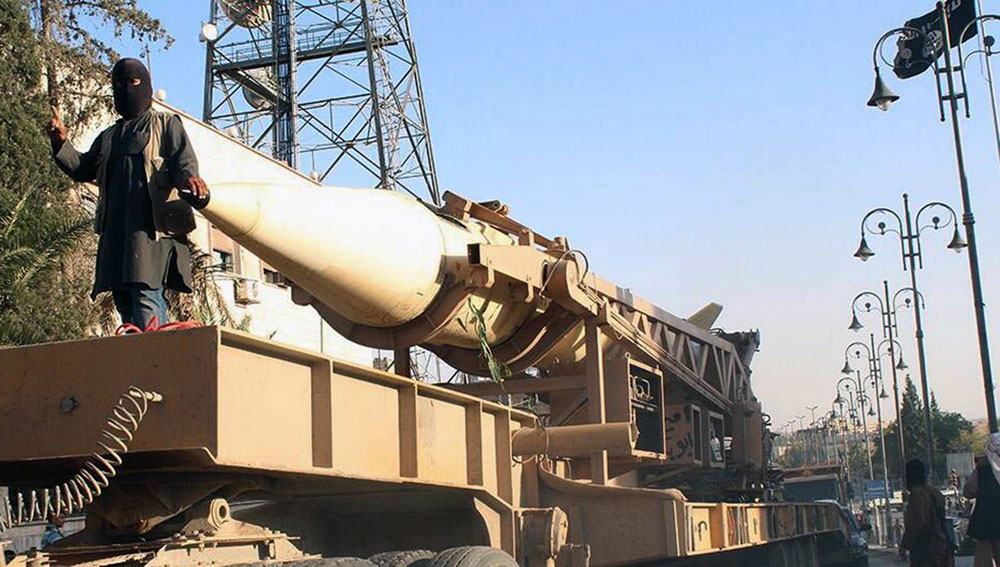
US must opt for different strategy against Islamic State
Analysis: To prevent jihadist organization from spreading and redeveloping during and after offensive stage, US can connect region's stable countries and groups in a way which will seal 'infected' area.
There are two significant gaps in the American operation. First of all, it focuses solely on hitting targets, which will unlikely lead to the full disbandment of the Islamic State. Secondly, at the moment it has no plan for a new regional arrangement which will guarantee stability.
The only blatant mistake ISIS has made so far is provoking America with the public beheadings. That is what forced President Barack Obama to intervene. But ISIS is also the first to realize its mistake, and it is completely changing its strategic direction these days.
The organization is shifting its movement back from east to west: From Iraq back towards Syria and northward to the Turkish border, and moving deep into Lebanon, where the coalition's ability to get involved is smaller and the organization's ability to hide and maintain its power is higher.
Entering Lebanon will significantly undermine the Syrian front. It will force Hezbollah leader Hassan Nasrallah to move a significant part of his forces bask to defend Lebanon, thereby weakening the Syrian front and gaining ISIS another advantage in Syrian President Bashar Assad's backyard.
The disadvantages of the American offensive could have three consequences:
1. Without a ground invasion, the organization will be able to survive and will even grow stronger after "fighting the entire West"
2. Chaos will be created on the ground – and chaos is a fertile ground for the development of terror and Somalization
3. The Iranians and Hezbollah will take advantage of the fact that the ISIS has weakened in order to capture the "infected" areas in western Iraq and eastern Syria and implement the plan of the continuous "corridor" between Tehran and Beirut
We must not forget that we are constantly seeing a type of political "melting" in the background which is already taking place between Washington and Tehran, and is being used for demands concerning the nuclear issue. This is a strategic result which will advance Iran's status as a regional power and will be much worse than the current situation.
The US still has time to choose a different "containment" strategy: Relaying on the system of stable countries and groups in the surrounding area and connecting them in a way which will contain and seal the "infected" area in the center. The goal is to prevent ISIS from spreading and redeveloping during and after the offensive stage.
Such a move requires Turkey's help and the reinforcement of its southern border, through which recruits and funds reach ISIS. There is a need to speed up the actual independence of Kurdistan and rebuild the Iraqi army (which will take at least three years). In the south, the Jordanian border must also be reinforced.
But the most important level is changing the American perception regarding Syria and the understanding that we are no longer talking about mending the Assad regime and replacing it with another. The ideas of restoring Syria to its previous condition through an ephemeral opposition will most certainly lead to an Iraq-style error. Syria's future is split: The small Syria controlled by the Alawites, a united Kurdish north and the eastern part of the country as the opposition's "new Syria."
Israel must try to influence the coalition's strategy considerations, but at the same time develop its own response. An idea in the form of a new safety zone in the Golan Heights, like the one we had in southern Lebanon as a depth zone, which could serve as a "filter" for preventing infiltrations, deepening the intelligence on the ground and as a basis for conducting raids and deep activities against possible indirect fire from the heart of Syria towards Israel.
The lessons of the past show that this should be built with the IDF's physical presence, but based on the local forces in the region.
But before all that, and in order to divert the required attention to what is happening in the north, it's very important to properly wrap up the Gaza chapter in the south, which requires significant political decisions, even beyond the level of honor in the face of Hamas.
Major-General (res.) Israel Ziv served as head of the Operations Directorate branch in the IDF's General Staff.











